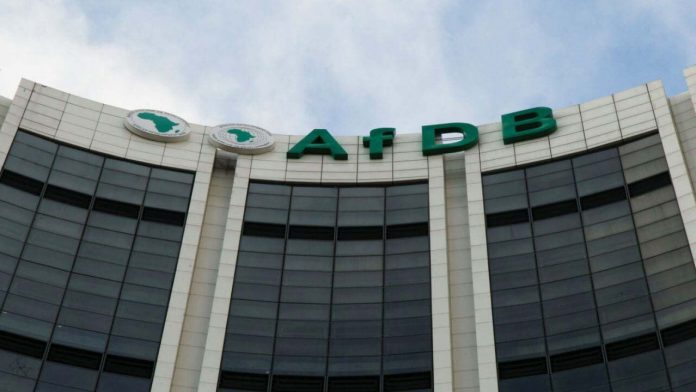The African Development Bank reviews its economic scenario for each African country in a voluminous report. It sees a gradual and gradual exit from the crisis, but warns of risks and uncertainties.
The AfDB (African Development Bank) is publishing, in early July, a voluminous supplement to its annual document African Economic Outlook. We can guess that the pandemic crisis of Covid-19 made obsolete the forecasts published in January.
Without catastrophism, the Bank is cautious, sometimes alarmist, in the face of the social and economic consequences of the health crisis, especially in the event that it continues. The Covid pandemic, “if not addressed quickly, poses a high risk of a humanitarian and public health disaster for Africa.”
The spread of the coronavirus in Africa depends largely on the readiness of countries, their ability to isolate and treat infected patients from the rest of the population, the report says.
Clinically, only 21 of the 54 African countries have the means to cope with epidemics. However, the supplement highlights that the pandemic curve in Africa is gradually flattening out. If the trend continues, the “pessimistic” scenario of a 3.4% drop in GDP in 2020 can be ruled out.
Likewise, the AfDB notes a “sudden acceleration” in inflation, but considers that core inflation should resume its pre-crisis rate once the pandemic has subsided.
However, given the inadequacies of health systems and social protection, the virus remains a threat to human lives and people’s livelihoods. The continent also remains vulnerable to other threats, such as the locust clouds in East Africa, and extreme weather events.
According to the scenario adopted, after a contraction of 1.7% of Africa’s GDP this year – a figure which masks disparities between countries – growth should be 3% next year. Nonetheless, “governments and development partners must act in a better coordinated, more targeted and faster manner to effectively limit the impact of the Covid-19 crisis,” the report said.
A different recovery depending on the case!
With new cases of viral infection doubling every 7 to 14 days in most African countries, and 33 of the countries with “very poor health system preparation” for the pandemic, its impact threatens to disrupt the continent’s recent development trajectory.
A “partial recovery” of around 3%, therefore, is planned for 2021. But the recovery forecast in 2021 would not offset an estimated cumulative loss of Africa’s GDP of 173.1 to 236.7 billion dollars for 2020 and 2021.
Significant variations in the economic impacts of Covid-19 are expected in African countries, depending on their sectoral structure and initial conditions.
Tourism-dependent countries, oil exporters, and other resource-intensive economies are expected to be the hardest hit. They will face travel restrictions around the world and the collapse in demand and prices for raw materials, including oil.
For countries in these groups, growth in 2020 is expected to contract, on average, by more than 4 percentage points than the average. Economies that consume less resources, thanks to more diversified economic structures, should be able to withstand the shock better.
Budget deficits are expected to double and debt levels to increase by 10 percentage points of GDP. Thus, the pandemic would cause an additional public sector funding deficit of $ 122 billion. This is especially problematic as the global financial markets have fled to safety, affecting the liquidity of emerging markets. Hence the sharp drop in foreign investment, remittances and portfolio flows.
An estimated 28.2 to 49.2 million more Africans could be plunged into extreme poverty, the AfDB feared. Between 24.6 and 30 million jobs could be lost due to the pandemic.
The direct impact of the disease on more than 23 million already vulnerable workers in Africa would bring the total number of people living in extreme poverty to 463 million, in the worst case.
Well anticipating the risks!
Given the global scale of the pandemic, governments and development partners must respond in a coordinated, focused and timely manner using all available policy levers. These levers include a well-targeted public health intervention to contain the spread of the virus and minimize deaths.
As well as a political response to mitigate liquidity constraints and solvency risks. Policies require a budgetary response to cushion the impact of the virus and to protect vulnerable groups.
They also involve labor market controls to protect workers and their jobs, and structural policies to prepare for a post-Covid-19 world and build resilience to future shocks.
To reopen the economies, “policy makers will have to make trade-offs between, on the one hand, reviving the economy and, on the other, controlling the spread of the coronavirus”, suggests the AfDB. Depending on who economic activities can be restarted gradually based on the transmission risks of the different sectors.
The AfDB thus differentiates companies considered to have a low to medium transmission of risks, from manufacturing, construction and certain retail services, to reopen first. Governments should ensure that the epidemic does not start before reopening “risky” economic activities, such as hotels, schools, restaurants, and places of sport and entertainment.
This is why, in 2021, the V-shaped recovery would only be partial, as sectors such as tourism, transport, and entertainment will take longer to recover, while populations will have to gradually readjust to new social interactions. .
Countries dependent on tourism, transport and leisure will therefore certainly be the ones that will take the longest to leave. Between 2017 and 2018, the tourism and travel sector in Africa grew by 5.6%, for an international average of 3.9%.
Building Africa’s Resilience!
“The current Covid-19 pandemic is certainly not the last major shock the continent will face”, said Charles Lufumpa, acting chief economist at the AfDB. In this supplement, “we stressed the need to accelerate structural reforms to enable African countries to build more resilient economies and better prepare for dealing with future crises.”
By increasing productivity and removing barriers to the business environment, African countries could boost their productive base and increase their levels of industrialization.
“These reforms to build resilience would require investments in human capital to build a workforce with the right skills for high-productivity sectors”, said the economist.
They also require investments to bridge the infrastructure gap to advance Africa’s industrial development.
In addition, promoting economic diversification will help African countries adapt to an increasingly volatile global economy and better protect themselves from future crises.
This will require targeted policies, which boost agricultural productivity and shift labor from low productivity sectors to high productivity sectors, as well as assistance to competitive sectors.
Finally, among the other problems that will have to be solved in order to achieve faster growing and more resilient African economies, Charles Lufumpa, following the AfDB report, cites the formalization of the shadow economy sector, ensuring political stability, good governance and transparency, and strengthened protection mechanisms for property rights.































